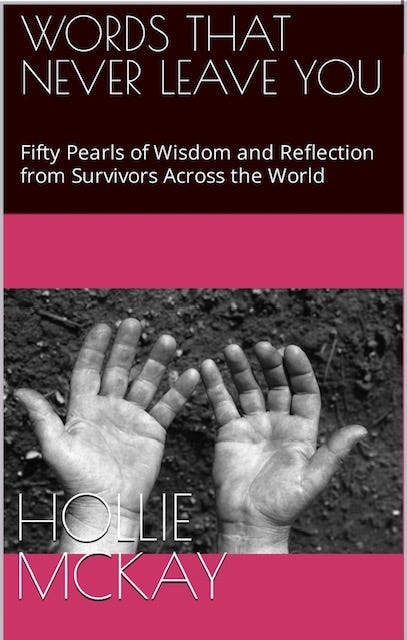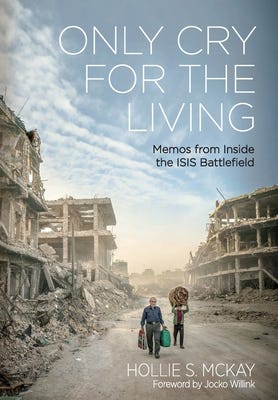Shame on the UN: it only matters when certain populations are targeted with rape as a weapon of war
“Believe All Women” apparently doesn’t apply to Hamas’s Israeli rape victims
It’s the sort of testimony that is hard to stomach. Since Hamas attacks on Israel on October 7, igniting another horrific war on Gaza, survivors have come forth to bravely document what happened to them while held in Hamas captivity.
Some recalled having their clothes ripped off as a circle of assailants laughed while raping them. Only they were the ones that have made it through. Many others were killed. Authorities discovered one murdered woman had “nails and different objects in her female organs.” Another person’s genitals were so mutilated that investigators could not determine if it was a man or a woman. Videos have emerged of Hamas bragging about “whoring” Israeli women. This is sick stuff.
Chillingly, many others are still missing.
One can vehemently condemn Israel’s heavy-fisted war on a vulnerable population, but to somehow think rape as a weapon of war is ever justified in any way, shape, or form is despicable. There is never an excuse or a justification for this strain of barbarity. Nobody is going to see a Free Palestine or a region at peace by pretending or denying that this awful war crime was committed.
However, that is exactly what the U.N. – an entity we as taxpayers help fund – seemingly tried to do. It took 62 pressure-fueled days for the United Nations Office of the Secretary-General on Sexual Violence in Conflict to issue a statement expressing “grave concern” about “emerging reports of sexual violence against women and men while they were in Hamas captivity.”
Meanwhile, the office – which operates under the banner of “End Rape in War” – has been too cowardly to post about this on social media, instead limiting its criticism of sexual violence as happening everywhere from Mali, Nigeria, and South Sudan to Afghanistan, Libya, Colombia, Ukraine, and Myanmar.

But they aren’t the only ones operating under a veil of silence. What happened to the advocates of “Believe All Women”? Why are the victims of Harvey Weinstein and Jeffrey Epstein to be believed when Israeli women are not? Why is it so hard to identify that this is a clear-cut situation of wrong? Have we really only come this far to come this far?
Sadly, rape as a weapon of war is as old as humankind and, for too long, has been submerged in the shadows as either a lesser crime than slaughter or too taboo to talk about, especially in deeply guarded or staunchly religious societies where honor is inexplicably tied to a woman’s virginity. This stigma slowly started to unravel and change in recent years, although it now seems as though we are taking a giant step backward.
Here is some background.
Although the language in Article 27 of the 1949 Geneva Convention states that women are to be protected “against any attack on their honor, in particular against rape, enforced prostitution, or any form of indecent assault,” the crime has little presence in international justice efforts.
It was only in the late 1990s that rape was formally acknowledged in war crime tribunals. It has come to be a quiet stain on almost every conflict from antiquity through the modern battles of World War I and II, Korea, Vietnam, Rwanda, Yugoslavia, Syria and beyond.
The first landmark prosecution took place in 1998 at the U.N. International Criminal Tribunal for Rwanda. However, in its 20 years of existence, that court, the International Criminal Court, only achieved one conviction for rape and sexual slavery, and that was in a 2019 case of a Congolese warlord.
It was not until 2008 that the U.N. Security Council passed Resolution 1820, which officially recognized rape and other forms of sexual violence as a “war crime, or a constitutive act with respect to genocide.”
One can take a life without killing, and that is what rape as a weapon of war all too often does. Sexual violence is an effective genocidal tool that is readily available and inexpensive, useful in not only devastating victims but strategically — and for the long-term — debilitating families and entire communities.
Rape wrapped inside combat comes with a mosaic of consequences. Victims on a large scale might be infected with HIV or other life-threatening diseases or injuries, ethnicities might be dramatically depleted through intentional impregnation, and husbands and families often shun victims. And jarringly, the pervasiveness of the atrocity then normalizes sexual violence in society and reinforces gender inequality long after a conflict concludes.
Nonetheless, the prevalence of such wartime sexual violence has continued because perpetrators have not historically faced retribution. According to human rights advocates, rape remains one of the most “underreported and inadequately prosecuted of all war crimes.”
Compounding the problem is the generational damage, which is as destructive as it is widespread. The ruthless attacks also harm the young, who are sometimes forced to watch their mothers or protectors endure sexual assaults — or, in some twisted cases, act as perpetrators themselves.
Ultimately, impunity for rape during times of conflict must be abolished. Without this, there is little incentive for the transgression to stop. And there is little chance that survivors will have their dignity restored and heal from the tangle of nightmares that play on a loop in their heads, their lives forever in limbo.
PLEASE CONSIDER A PAID SUBSCRIPTION TO THIS SUBSTACK TO HELP KEEP INDEPENDENT, AGENDA-FREE WRITING AND JOURNALISM ALIVE. THANK YOU SO MUCH FOR YOUR SUPPORT.
For speaking queries please contact meta@metaspeakers.org
For ghostwriting, personalized mentoring or other writing/work-related queries please contact hollie@holliemckay.com
Follow me on Instagram and Twitter for more updates
HOLLIE’S BOOKS (please leave a review)
** Short read of meaningful lessons gleaned from the ordinary forced to become extraordinary
Order your copy of “Afghanistan: The End of the US Footprint and the Rise of the Taliban Rule” due out this fall.
For those interested in learning more about the aftermath of war, please pick up a copy of my book “Only Cry for the Living: Memos from Inside the ISIS Battlefield.”
If you want to support small businesses:





